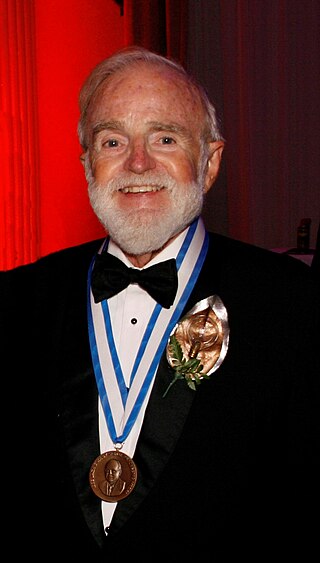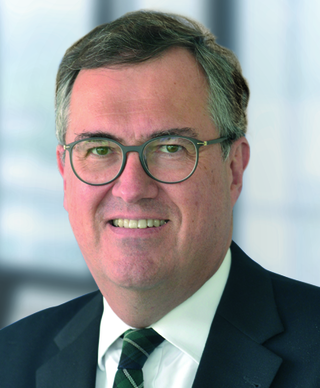Thomas Kailath is an Indian born American electrical engineer, information theorist, control engineer, entrepreneur and the Hitachi America Professor of Engineering emeritus at Stanford University. Professor Kailath has authored several books, including the well-known book Linear Systems, which ranks as one of the most referenced books in the field of linear systems.

Adel S. Sedra is an Egyptian Canadian electrical engineer and professor.

Philip Mayne Woodward was a British mathematician, radar engineer and horologist. He achieved notable success in all three fields. Before retiring, he was a deputy chief scientific officer at the Royal Signals and Radar Establishment of the British Ministry of Defence in Malvern, Worcestershire.
Fawwaz T. Ulaby is Arthur F. Thurnau Professor of Electrical Engineering and Computer Science at the University of Michigan in Ann Arbor and formerly the Founding Provost and Executive Vice President of the King Abdullah University of Science and Technology (KAUST) and R. Jamieson and Betty Williams Professor of Electrical Engineering and Computer Science at the University of Michigan.
The joint probabilistic data-association filter (JPDAF) is a statistical approach to the problem of plot association in a target tracking algorithm. Like the probabilistic data association filter (PDAF), rather than choosing the most likely assignment of measurements to a target, the PDAF takes an expected value, which is the minimum mean square error (MMSE) estimate for the state of each target. At each time, it maintains its estimate of the target state as the mean and covariance matrix of a multivariate normal distribution. However, unlike the PDAF, which is only meant for tracking a single target in the presence of false alarms and missed detections, the JPDAF can handle multiple target tracking scenarios. A derivation of the JPDAF is given in.
The IEEE Dennis J. Picard Medal for Radar Technologies and Applications is an award presented for outstanding accomplishments in advancing the fields of radar technologies and their applications. This award can be presented to an individual or group of up to three people.
Simon Haykin is an electrical engineer noted for his pioneering work in Adaptive Signal Processing with emphasis on applications to Radar Engineering and Telecom Technology. He is currently Distinguished University Professor at McMaster University in Hamilton, Ontario, Canada.
Yeheskel Bar-Ness is a Distinguished Professor Emeritus at New Jersey Institute of Technology (NJIT).
Professor Shlomo Shamai (Shitz) (Hebrew: שלמה שמאי (שיץ) ) is a distinguished professor at the Department of Electrical engineering at the Technion − Israel Institute of Technology. Professor Shamai is an information theorist and winner of the 2011 Shannon Award.

Harold Vincent Poor FRS FREng is the Michael Henry Strater University Professor of Electrical Engineering at Princeton University, where he is also the Interim Dean of the School of Engineering and Applied Science. He is a specialist in wireless telecommunications, signal processing and information theory. He has received many honorary degrees and election to national academies. He was also President of IEEE Information Theory Society (1990). He is on the board of directors of the IEEE Foundation.

AlfonsoFarinaFREng is an Italian electronic engineer and former industry manager. He is most noted for the development of the track while scan techniques for radars and generally for the development of a wide range of signal processing techniques used for sensors where tracking plays an essential role. He is author of about 1000 publications. His work was aimed to a synergistic cooperation between industry and academy.

Kamal Sarabandi is an Iranian-American scientist and the Fawwaz T. Ulaby Distinguished University Professor of EECS and the Rufus S. Teesdale endowed Professor of Engineering at the University of Michigan, where he teaches and conducts research on the science and technology of microwave and millimeter wave radar remote sensing, wireless technology, electromagnetic wave propagation and scattering, metamaterials, antenna miniaturization, and nano antennas.

Harry Leslie Van Trees was an American scientist specializing in radar, sonar, communications and signal processing.
Palghat P. Vaidyanathan is the Kiyo and Eiko Tomiyasu Professor of Electrical Engineering at the California Institute of Technology, Pasadena, California, USA, where he teaches and leads research in the area of signal processing, especially digital signal processing (DSP), and its applications. He has authored four books, and authored or coauthored close to six hundred papers in various IEEE journals and conferences. Prof. Vaidyanathan received his B.Tech. and M.Tech. degrees from the Institute of Radiophysics and Electronics, Science College campus of University of Kolkata, and a Ph.D. degree in Electrical Engineering from University of California Santa Barbara in 1982.

Moeness G. Amin is an Egyptian-American professor and engineer. Amin is the director of the Center for Advanced Communications and a professor in the Department of Electrical and Computer Engineering at Villanova University.

Yonina C. Eldar is an Israeli professor of electrical engineering at the Weizmann Institute of Science, known for her pioneering work on sub-Nyquist sampling.
Vishal Monga is an Indian American electrical engineer, researcher and academic. He is a professor of Electrical Engineering at the Pennsylvania State University.
Mahta Moghaddam is an Iranian-American electrical and computer engineer and William M. Hogue Professor of Electrical Engineering in the Ming Hsieh Department of Electrical and Computer Engineering at the University of Southern California Viterbi School of Engineering. Moghaddam is also the president of the IEEE Antennas and Propagation Society and is known for developing sensor systems and algorithms for high-resolution characterization of the environment to quantify the effects of climate change. She also has developed innovative tools using microwave technology to visualize biological structures and target them in real-time with high-power focused microwave ablation.

Johann Wolfgang Koch is a German physicist and computer scientist. He teaches applied computer science at the University of Bonn, Germany, and is chief scientist of the Fraunhofer Institute for Communication, Information Processing and Ergonomics. In 2011, Koch was elected a IEEE Fellow and since 2015, he has been an IEEE Distinguished Lecturer
Pramod Kumar Varshney is a computer scientist and an electrical engineer at Syracuse University's College of Engineering and Computer Science. He is known for research on distributed detection theory.









